




 |
   |
 |
|
Aumether Aura Autohaze Autumn Defense |
Average White Band Averi Avett Brothers Aviary |
Nick Awde Axis Kevin Ayers Roy Ayers |
Azabache Azahar Aziz |
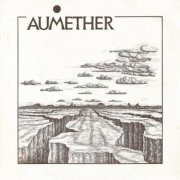 |
7" (197?) ***½/TTTT½ Citadelle d'Illusion Vibrations de Terre |
Current availability:
Mellotron used:
Switzerland's entirely obscure Aumether appear to have only ever recorded this one single, release date unknown, though clearly from some point in the early-to-mid-'70s. Going by the composition and arrangements, they clearly wanted to play full-blown progressive rock, not a genre known for its single-friendly song lengths, so it wouldn't be unreasonable to assume that these were either two of their shorter tracks, or they were edited heavily. Citadelle D'Illusion goes great guns until around the 1:30 mark, when the vocals finally enter the fray and spoil things a little, while Vibrations De Terre is a lot like the 'A', only without with instrumental intro.
The unknown keyboard player sticks dirty great slabs of Mellotron strings all over Citadelle, with choir and cello (?) parts thrown in for good measure, with more strings and choirs on the flip, making this one of the more Mellotron-heavy rarities I've run into recently, especially in 7" format. I'm sure an original will set you back a fairly stupid sum, but that's what download blogs are for, isn't it? Incidentally, thanks once again to Mauro for pointing me at this. [n.b.] Both sides are now available on Holywax Records' Evasion - A Journey Into Swiss Psych & B-Music; the CD has sold out, but it's on Bandcamp.
 |
 |
The Aura [a.k.a. Sativa] (1976, 30.38) ***½/T |
|
| You Got Something Clap Your Hands First Taste of Love It's a Feeling Gonna Make it Sativa Mess Up Your Mind Don't You Worry |
Trying to Hold it Down Skyrocket |
||
Current availability:
Mellotron used:
Oakland's Aura are usually described as psych/funk or similar, but the sound on their sole LP, 1976's The Aura (originally to be titled Sativa, until the drug reference got someone running scared), is more Bay-Area Latin rock than anything, sounding an awful lot like early Santana, right down to the ripping guitar leads and massed percussion. OK, so it's probably funkier than most of Santana's output, while the female vocals and brass lead the music more in that direction, but this really is more Latin than anything. The album was apparently rediscovered through hip-hop crew Oaktown's 357's sampling of Mess Up Your Mind, leading crate-diggers to search out originals and an eventual reissue, under its original title, by Lion Records.
So, is it any good? Yes, is the simple answer, tracks like propulsive opener You Got Something, the funky Sativa and freak-out closer Skyrocket lifting the album above other, second-division Latin rock/funksters. The same can be said for Eddie Weiss' guitar work, his acid-drenched (sorry) leads being singled out for particular praise. Robin Kutulas plays Mellotron (a studio machine?), with strings doubling the Hammond on You Got Something and full-on string and flute parts on First Taste Of Love, although it's not exactly what you'd call a major feature of their sound. All in all, definitely a lost classic, at least of its kind, which is more than you can say for many so-called 'buried treasures'.
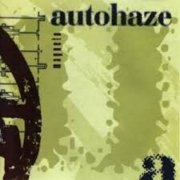 |
Magneto (1995, 44.04) **½/T½ |
|
| Intro White Bird Satellite City On My Mind Broken Wing Light of the Day Can't You See Way Out There |
Freeload Maps to Find Her Blackbird |
|
Current availability:
Mellotron used:
Autohaze were a Melbourne-based indie outfit, 1995's Magneto being the first of their two albums, a startlingly average set of vaguely alt.rock boredom, 'featuring' Tim Jackson's weak, ineffectual vocals. The bulk of the record's contents are, frankly, the dreariest set of indie nonsense I've had the displeasure to hear for a while. Honourable exception? Near-eight-minute closer Blackbird, a surprisingly decent slowburn effort, taking several minutes to build to a crescendo, if not actually making up for the boredom induced by the rest of the album.
Mercury Records clearly thought Autohaze were going to be the Next Big Thing (spoiler alert: they weren't), as they stumped up a big enough budget (recoupable from sales, of course) for the band to record at Massachusetts' Fort Apache Studio. Guitarist Chris Chapple played (presumably) the studio M400 on two tracks: thirty-second opener Intro is no more or less than a Mellotron solo, mournful strings followed by a brief cello part, while he plays strings throughout Blackbird, to pleasing effect. Want to hear this anyway? It's on Bandcamp.
 |
Fifth (2014, 46.09) ***½/TT½ |
|
| None of This Will Matter This Thing That I've Found I Can See Your Face I Want You Back Calling Your Name Can't Love Anyone Else August Song Under the Wheel |
Why Don't We The Light in Your Eye Things on My Mind What's it Take |
|
Current availability:
Mellotron used:
The Autumn Defense are, essentially, the Wilco duo of John Stirratt (Uncle Tupelo) and Pat Sansone (Joseph Arthur, Ryan Adams), whose fifth album, er, Fifth (bit of a giveaway, that), is, again, an Americana/powerpop cross and a distinct improvement over their sampletastic debut, The Green Hour, possibly at its best on This Thing That I've Found (spot the pseudo-George slide work), Under The Wheel and superb closer What's It Take.
Sansone plays one or more of Wilco's Mellotrons, credited on several tracks, with occasional chordal flutes and strings on opener None Of This Will Matter, strings on This Thing That I've Found, barely-there cellos and flutes on I Can See Your Face, strings on I Want You Back, upfront strings on Under The Wheel and distant strings on The Light In Your Eye. Eminently listenable, then, if not up there with the best the genre has to offer.
See: Samples etc. | Wilco
 |
AWB (1974, 41.09) ***/½ |
||
| You Got it Got the Love Pick Up the Pieces Person to Person Work to Do Nothing You Can Do Just Wanna Love You Tonight Keepin' it to Myself |
I Just Can't Give You Up There's Always Someone Waiting |
||
Current availability:
Mellotron used:
AWB was the Average White Band's second album, containing their only UK hit, the iconic Pick Up The Pieces, which sounds an awful lot better now than it did at the time, I have to say. It's a strange album, split straight down the middle (er, weren't they all back then?), with the more uptempo, funky stuff on side one, leaving the flip for their more soulful material, although, thankfully, they ran out three songs in, upping the funk factor for the last two tracks.
One Mellotron track, with strings on Just Wanna Love You Tonight from sessioneer Ken Bichel; passable use, but nothing to raise the blood pressure. So; white soul/funk your (papa's got a brand new) bag? Nope? Don't bother, then, although it's surprisingly good at what it does, once removed from its era.
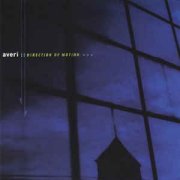 |
Direction of Motion (2001, 45.43) **½/T½ |
|
| Discovering the Truth About Oz The Bones Underneath This Liminal Life In Tune Waiting for a Ghost Flutter The Time it Takes to Disappear How Do You Deal? |
Numb Home |
|
Current availability:
Chamberlin used:
Averi's first release (of, to my knowledge, two), 2001's Direction of Motion, kicks off in prime powerpop mode, although, sadly, they fall out of the quality tree as the album progresses, most of its contents more in 'cheesy transcendental pop/rock' territory (think: a powerpop Coldplay. If you must). Better tracks? Opener Discovering The Truth About Oz, The Time It Takes To Disappear, with its excellent sax part and Numb, in direct contrast to drivel such as In Tune and closer Home.
Mike Denneen plays Chamberlin, with chordal strings on The Time It Takes To Disappear and volume-pedalled ones on Numb, but it's nowhere near enough to make this below-average album worth hearing.
 |
The Carpenter (2012, 46.38) ***/T |
|
| The Once and Future Carpenter Live and Die Winter in My Heart Pretty Girl From Michigan I Never Knew You February Seven Through My Prayers Down With the Shine |
A Father's First Spring Geraldine Paul Newman vs. the Demons Life |
|
Current availability:
Mellotron used:
Scott and Seth (plus collaborators), the prolific Avett Brothers, have produced seven full-length efforts (not to mention several EPs and live albums) in a decade, combining a trad-ish form of Americana with bursts of punk energy and a real feel for the genre, missing in many other adherents. Unfortunately, 2012's The Carpenter very slightly outstays its welcome (in this listener's opinion), although material such as opener The Once And Future Carpenter, I Never Knew You, A Father's First Spring and the energetic Paul Newman Vs. The Demons are as strong as pretty much any Americana you might hear.
Benmont Tench (Tom Petty) plays Mellotron flutes on A Father's First Spring, with a melodic part that helps to carry the song, rather than simply being added for effect, which makes a nice change. The Carpenter's a decent enough record, but without hearing the Avetts' earlier work, I can't say whether or not it's one of their better albums.
See: Samples etc.
 |
Aviary (1979, 37.10) ****/0SoaringAnthem for the U.S.A. Puddles As Close as You Can Get Mystic Sharon Feel the Heart (Then You'll Be Mine Again) Average Boy I Will Hear Maple Hall |
 |
Ambition (2003, recorded 1977-79, 51.11) ***½/TTT |
|
| Hello The Sun, the Sand Apathy Ambition You Desert Songs/Pharaohs March I Should of Known Eva's Birthday |
Fine Lines Working Girl Yes and No |
|
Current availability:
Mellotron used:
Aviary, if they're remembered at all these days, are usually lumped in with the late '70s AOR crowd, which is to heavily over-simplify the matter. Their sole, eponymous 1979 album can list various artists as influences, not least Queen, ELO and Styx, who had only just shifted over to full-blown AOR themselves at that stage, remember, so calling it 'AOR' gives the potential listener a distorted picture. Aviary actually fits fairly and squarely into the small and much-maligned 'pomp' sub-genre: the place where hard rock, prog and AOR meet (stop cringing at the back), as practiced by (amongst others) Saga, Angel and yes, Styx.
Of course, in keeping with their genre-mates, the album's ridiculously overblown and pompous; I find it helps to see these things as being in a record's favour, rather than to its detriment, which aids the appreciation of its more uncomfortable aspects, not least the opening chords to Anthem For The U.S.A., the woodwind-driven Puddles (probably the oddest track here) and Mystic Sharon, though only for its title. I'm giving a bad impression, I suspect; this is actually a wonderful record, full of neo-baroque synth flourishes (imagine ol' J.S. with a MiniMoog) and falsetto harmonies to die for. Top tracks include opener Soaring (does what it says on the tin), Feel The Heart, with its OTT Hammond intro, Average Boy and closer Maple Hall, although, in truth, there's little to fault here, despite my earlier caveats. Although vocalist/songwriter Brad Love doubles on keys, it seems it's full-time keys man Paul Madden who allegedly plays the album's Mellotron parts; allegedly because their label clearly gave them a big enough budget to afford a string section, employed on several tracks, to the point where if the Mellotron's here at all, it's been successfully buried under real strings. Pity. Bet it got heavy use live...
That was it for Aviary, or so it seemed, as 2003 brought an archive disc of recordings from 1977-79, Ambition. Less luxurious than Aviary, it's still full of wildly extravagant pomp, not least its prog epic (actually two tracks very visibly stuck together), Desert Songs/Pharaohs March and the nutsoid Eva's Birthday, which reminds me more of the bonkers Carnegie (a.k.a. The Mark & Clark Band) than anyone else. And who was responsible for the shockingly ungrammatical I Should Of Known, eh? Perhaps it's an in-joke. Plenty of Madden's Mellotron this time round, with strings on all highlighted tracks, cellos on Desert Songs and very distinct choirs on Pharaohs [sic] March.
 |
Close to the Edge [as Nick Awde & Desert Hearts] (2010, 25.30) ***½/TTT½Close to the EdgeThe Solid Time of Change Total Mass Retain I Get Up I Get Down Seasons of Man Rocket Man (I Think it's Going to be a Long, Long Time) Meryl Streep Close to the Edge (Reprise) |
 |
Mellotronic Belgian Blues (2015, 34.56) ***½/TTT½Gent From GenkNeil Young Headless in Camden Cinco Siglos Igual Last Tango in Starbucks An English Werewolf in Woluwe Lazy Susan (Knokke Version) Freddy and Marvin (Oostende Healing) Rocket Man (I Think it's Going to Be a Long, Long Time) |
Current availability:
Mellotrons used:
Playwright/Mellotron: the Machine and the Musicians That Revolutionised Rock author Nick Awde is also the man behind the two (to date) MelloFests, yours truly (and pal Gary) providing Mellotrons, bad playing and panic-stricken, last-second arrangement changes. None of which has much to do with Nick's first release on his Desert Hearts label (MelloFest 3, as it happens), the provocatively-titled Close to the Edge EP. Er, EP? Yup, it features no less than the first non-tribute act cover (to my knowledge) of Yes' timeless side-long classic, along with Nick's take on Elton John's Rocket Man, his own Meryl Streep (vocals from The Vibrators' Knox, which explains a lot) and a brief reprise of the title track. Basically, the title track is a piano/Mellotron/vocal version of the original full band arrangement, the sampled piano being played by an age-old MIDI file (the project's been in various stages of completion for a decade or longer). The overall effect of mad, high-speed jazzy piano with no drums, especially when you know the original inside-out, can be quite disconcerting, but it certainly gives the listener a different perspective on an overly-familiar piece. Nick's vocal contributions are fine, although some of the backing vox are slightly suspect on the pitch front, which is about the only real criticism I'd level at the disc.
Nick plays his own, brand-new M4000, with some vicious string pitchbends on part one of Close..., The Solid Time Of Change, a handful of string chords on Total Mass Retain, distant Russian choir and upfront flutes on I Get Up I Get Down and a huge amalgam of no fewer than four different choirs (male/female/boys/Russian) on the 'church organ' part on the original. Other, less obvious parts includes vibes in a couple of places and a cello/bass clarinet/church organ underpinning towards the end. Rocket Man's choruses are a female/boys choir amalgam, plus occasional strings and bass clarinet treated to sound like a didgeridoo (!), with background strings and even more background bass clarinets and brass on Meryl Streep. Close To The Edge (Reprise) loses the manic piano, going instead for completely OTT strings over a far more restrained piano part, making for a pretty full-on Mellotron release, unsurprisingly.
Nick's slightly belated follow-up, 2015's Mellotronic Belgian Blues, is more of a 'regular' release, a fairly sparsely-arranged collection of songs betraying Nick's rather peripatetic lifestyle, referencing various European locations over its seven self-written vocal numbers. After tasteful instrumental opener Gent From Genk, the eccentric Neil Young comes as a slight shock, effectively Nick's shout-out to a host of his influences across the years, ditto Headless In Camden's wilful eccentricity, although beautiful piano-and-Mellotron ballad Cinco Siglos Igual (sung by Hannah Friedman, Dean's daughter) and the hypnotic Last Tango In Starbucks help to redress the balance. Without digging out my copy of Close to the Edge (duh, Nick's version), I can't say for sure, but closer Rocket Man sounds like it's been lifted directly from that release; it doesn't fit particularly well here, although I suppose it pushes the release above 'long EP' length. The Mellotron's credited on every track, with faint choirs on Gent From Genk, brass (?) on Neil Young, brass, strings and choir (and a variety of organ?) on Headless In Camden, 8-choir on Cinco Siglos Igual, strings, choir and string section on An English Werewolf In Woluwe, upfront flutes and cellos on Lazy Susan, more flutes on Freddy And Marvin and full-on strings on Rocket Man, although whatever's used on Last Tango In Starbucks is pretty well disguised.
So; do you buy these? It's difficult for me to be impartial towards a friend's work, but the bulk of Close to the Edge makes for very interesting listening, particularly for the Yes fan who thinks they've heard it all. Of course, a shitload of Mellotron use helps in one's appreciation, but I think you'll get something out of Nick's reinterpretation, the Mellotron use being merely the icing on the cake. Mellotronic Belgian Blues is also well worth the effort, minor eccentricities notwithstanding.
 |
Axis (1973, 41.28) ***½/TT½ |
||
| Waiting a Long Time Sewers Down Inside Materializing the Unlimited Asymphonia I Suspended Precipice Roads Asymphonia II Dancing Percussion |
Pa Vu Ga Di The Planet Vavoura |
||
Current availability:
Mellotron used:
I can't say I know an awful lot about this lot, but Axis is a very strange album; opening with the dull hard rock of Waiting A Long Time, it shifts into progressive gear on Sewers Down Inside, then covers several other musical styles over the ensuing eight tracks, including jazz, avant-garde dissonance and even ecclesiastical music on Pa Vu Ga Di. Being a progressive band from Greece is unusual enough (Akritas, from the same period are the only other one who spring to mind), but Axis' mix'n'match approach to their art puts them in a category all their own.
Demis Visvikis seems to've been the band's main man, playing all the keys as well as lead vocalising. He plays Mellotron on four tracks, all flutes and strings, with a speedy flute run on Asymphonia II and what sounds like distorted Mellotron flute on Sewers Down Inside. Strings and more flutes on Materializing The Unlimited and a healthy dose of strings on The Planet Vavoura to wind things up nicely.
 |
Joy of a Toy (1969, 41.43/67.17) ****/T |
||
| Joy of a Toy Continued Town Feeling The Clarietta Rag Girl on a Swing Song for Insane Times Stop This Train (Again Doing it) Eleanor's Cake (Which Ate Her) The Lady Rachel Oleh Oleh Bandu Bandong |
All This Crazy Gift of Time [CD reissue adds: Religious Experience (Singing a Song in the Morning) The Lady Rachel Soon Soon Soon Religious Experience (Singing a Song in the Morning) The Lady Rachel Singing a Song in the Morning] |
||
Current availability:
Mellotron used:
Joy of a Toy was ex-Soft Machiner Ayers' solo debut, showcasing his eccentric songwriting in almost as many different styles as it has tracks. Joy Of A Toy Continued (following on from the Soft Machine's debut) opens with a piercing electronic squeal, mutating into a typical late-'60s singalong, before taking a distinct sideways lurch into the cod-medieval intro to Town Feeling, the rest of the album continuing in a similar vein. Ayers declines to repeat himself throughout, while letting various ex-colleagues guest on different tracks, giving the album a vague 'Canterbury' feel, although that's the nearest it gets to any real sort of cohesion, which is absolutely not to be taken as a criticism.
Only two original album tracks contain any Mellotron, despite the lack of any mention in the 'instruments used' list. It's hard to say who might've played the odd, trebly strings part on The Clarietta Rag and the distorted MkII organ on Girl In A Swing (thanks for that one, Max), although David Bedford is listed on the album's Wikipedia entry, for what that's worth. Anyway, that would be it, were it not for one of the excellent bonus tracks on the CD, the second version of Religious Experience (Singing A Song In The Morning), which features a barely-audible 'highly eccentric Mellotron overdub', as it says in the sleevenotes. It's actually a few choppy string notes played by Ayers, but it isn't what you'd call essential, to say the least.
See: Bridget St. John
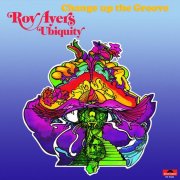 |
Change Up the Groove [as Roy Ayers Ubiquity] (1974, 35.27) ***½/TT½Change Up the GrooveSensitize Don't You Worry 'Bout a Thing Mash Theme Fikisha (to Help Someone to Arrive) Feel Like Makin' Love When is Real, Real? The Boogie Back |
 |
Daddy Bug & Friends (1976, partially recorded 1967/69, 36.39) ***½/T½Daddy BugI Love You Michelle Bonita Slow Motion Native Dancer In the Limelight Virgo Vibes (Outside Blues) |
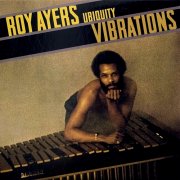 |
Vibrations [as Roy Ayers' Ubiquity] (1976, 40.41) ***/T |
|
| Domelo (Give it to Me) Baby I Need Your Love Higher The Memory Come Out and Play Better Days Searching One Sweet Love to Remember |
Vibrations Moving, Grooving Baby You Give Me a Feeling |
|
Current availability:
Mellotrons used:
Jazz vibraphonist Roy Ayers worked with Herbie Mann, amongst others, making it unsurprising that he used some of Mann's sidemen on 1974's Change Up the Groove, credited to Roy Ayers Ubiquity. In some ways, it's a typical mid-'70s funk/fusion release, although Ayers' spectacular vibes work makes it stand out from the pack, three Ayers compositions scattered amongst five covers, not least Stevie Wonder's Don't You Worry 'Bout A Thing and Mash Theme (you know, Suicide Is Painless). Mann's mid-'70s keyboard player, Pat Rebillot, plays largish quantities of uncredited Mellotron (thanks, William), with strings and cellos on Sensitize, strings on Don't You Worry 'Bout A Thing, choir on Mash Theme, solo flute and strings on Feel Like Makin' Love (not the Bad Company song) and pseudo-orchestral strings on When Is Real, Real?
 |
1976's Daddy Bug & Friends is a slightly odd album, with a fairly convoluted history: Daddy Bug was originally released in 1969, then reissued seven years later with several tracks missing, in a different mix with some contemporaneous overdubs from Mann cohorts, plus two tracks added from Ayers' '67 release, Virgo Vibes. Confused? Me too. Essentially, ...& Friends is a compilation of somebody's idea of the best bits of two previous albums with bits added, for what it's worth. It's mostly gentle piano/vibes jazz, so if you're allergic to the style, I can assure you that you won't be interested in this, however impeccably it's been written, recorded and produced. Rebillot is one of two musicians overdubbed onto the original tracks, playing uncredited Mellotron flutes and strings on I Love You Michelle and credited flutes on Slow Motion, although the strings on Bonita are real.
The same year's Vibrations (also credited to Roy Ayers Ubiquity) isn't dissimilar to Change Up the Groove, possibly at its best on opener Domelo (Give It To Me), the fusionesque Higher and Moving, Grooving, although too many tracks head towards the soul mainstream for my personal taste. Uncredited Mellotron, possibly Ayers himself, with background strings on The Memory, alongside the string synth and more upfront ones on Baby You Give Me A Feeling, although the strings on Better Days are real.
The original Daddy Bug's in print, but this strange, hybrid version is long unavailable, its Mellotronic charms clearly not proving enough to melt record label execs' hard hearts. Or maybe no-one can see the point, which is a shame, as not only is there some otherwise unavailable material on here, but it's got Mellotron on two tracks, which has to be worth something... Doesn't it?
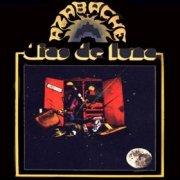 |
Días de Luna (1979, 38.17) ***½/TTCuidado Con la MarisolLos Dias Sin Sol Cuando la Luna Tio Carlos Algun Dia Noche de Meigas Galopantes Solo en Mi Ruta Días de Luna |
 |
No, Gracias (1980, 37.10) **½/THumos y GasesContra el Viento El Calor de Tu Piel Sopa de Mar Estar Contigo No, Gracias El Mundo va a Reventar Por los Viejos Tiempos Cabeza de Test |
Current availability:
Mellotrons used:
Azabache have only come to my attention recently, despite years of prog fandom; how many more little-known bands are waiting to pop up out of the woodwork? Even ones who got to release an album? Or, in Azabache's case, two. The band grew out of Azahar (below), releasing two albums into an increasingly hostile market, as even Spain's late-flowering progressive scene faltered. Amazingly, although neither are exactly classics of über-symphonicness, 1979's Días de Luna holds its head up amongst other prog albums released worldwide that year, although the following year's No, Gracias heads further towards the mainstream.
Días de Luna sounds pretty much as you'd expect: prog with a 'Spanish' sound (though less so than many flamenco-influenced outfits) crossed with new keyboard technology and an ...And Then there Were Three... feel in places. Surprisingly, Gustavo Ros still uses his Mellotron, although almost invariably mixed with string synth; a rich sound, but in some ways a diluted one. Anyway, we get strings on all highlighted tracks above, although the only really overt use is on Algun Dia, where it's used on its own, for once.
As mentioned above, No, Gracias is a more mainstream effort (with something of a Queen influence in places), although still just about worth hearing for fans of the country and era, particularly closer Cabeza De Test. Nowhere near as much of Ros' Mellotron, unsurprisingly, with flutes on Contra El Viento and strings on El Mundo Va A Reventar, but I think it's safe to say that we're lucky, at this stage, to get any at all. To be honest, Azabache aren't the most exciting band you're ever going to hear, although they certainly had their moments, but then, when they made these albums, you can be pretty sure they weren't looking thirty years ahead to how a small but vociferous worldwide prog scene might view them. They just wanted to sell some albums while still making the music they wanted to make.
 |
Elixir (1977, 37.55) ***½/½Campos de Azahar¿Qué Malo Hay, Señor Juez? ¡Es Que Esto No Tiene Nombre! Mercaderes Un Hombre Cansado Cantaros de Fuego Viaje a Marruecos Flipados Que No Me Vean Colgados de la Rama Gorda |
Current availability:
Mellotron used:
Azahar's first album is notable for being that rarest of things, a progressive rock album with no drums, although a little percussion is audible. And you know what? I didn't even notice. Been listening to too much prog, I suspect... The bulk of the album's rhythmic input comes from the piano and bass parts, although the guitar provides the occasional rhythmic figure, too. Elixir is actually pretty good, if slightly lacking in originality; it's certainly very melodic, with plenty of lush string synth backing, in typical Spanish style. Dick Zappala's vocals are a bit of an acquired taste, to be honest, but there are plenty of instrumental passages and some of the vocal parts are fairly restrained, so don't let that put you off.
Gustavo Ros is credited with Mellotron, along with piano, Rhodes and synths, but I'd pretty much given up on hearing any until the final, three-part track, Viaje A Marruecos, when a Mellotron string part suddenly swells up under the string synth on part two, Que No Me Vean, lasting about thirty seconds. Sadly, that appears to be it; why not use it more? Who knows?
 |
Lahore to Longsight (2006, 61.15) ***/T |
|
| Murassi Living a Lie Mummy's Boy Feeling Better Forget Yourself She Dances With Angels The Other Side A Face to Die for |
Middle Road Stone Haven Korma Coma Lahore to Longsight It's a Pressure to Know You |
|
Current availability:
Mellotron used:
Aziz Ibrahim has had a startlingly diverse career as guitarist-for-hire, depping with Simply Red in the late '80s, moving on to Asia, before working his way into Manchester's indie scene with The Stone Roses and Ian Brown. In more recent years, he's played on several Paul Weller albums and works with Marillion's Steve Hogarth in The H Band. See? I said it was diverse... His first solo release was 2006's Lahore to Longsight, referencing the city in Pakistan his parents left to start a new life in a suburb of Manchester. It starts well, with sitar-driven instrumental Murassi, but then Ibrahim spoils things by singing. Recognise your strengths, maybe? Excellent guitar work, terrible vocals. Matters aren't helped by the album's (over-) length, many of its tracks needlessly topping the five-minute mark. Be Here Now was a terrible warning, mate, not a blueprint...
Murassi aside, the album's at its best on Middle Road (originally a single from 2000) and brief psychedelic guitar piece Stone Haven, but too many of its songs are jammed out takes on wafer-thin ideas, notably Mummy's Boy and Korma Coma. Paul Weller plays (his own?) Mellotron on The Other Side, with wobbly, upfront string and flute parts. Three stars? This isn't a terrible listen, just a slightly dull one.
See: Paul Weller